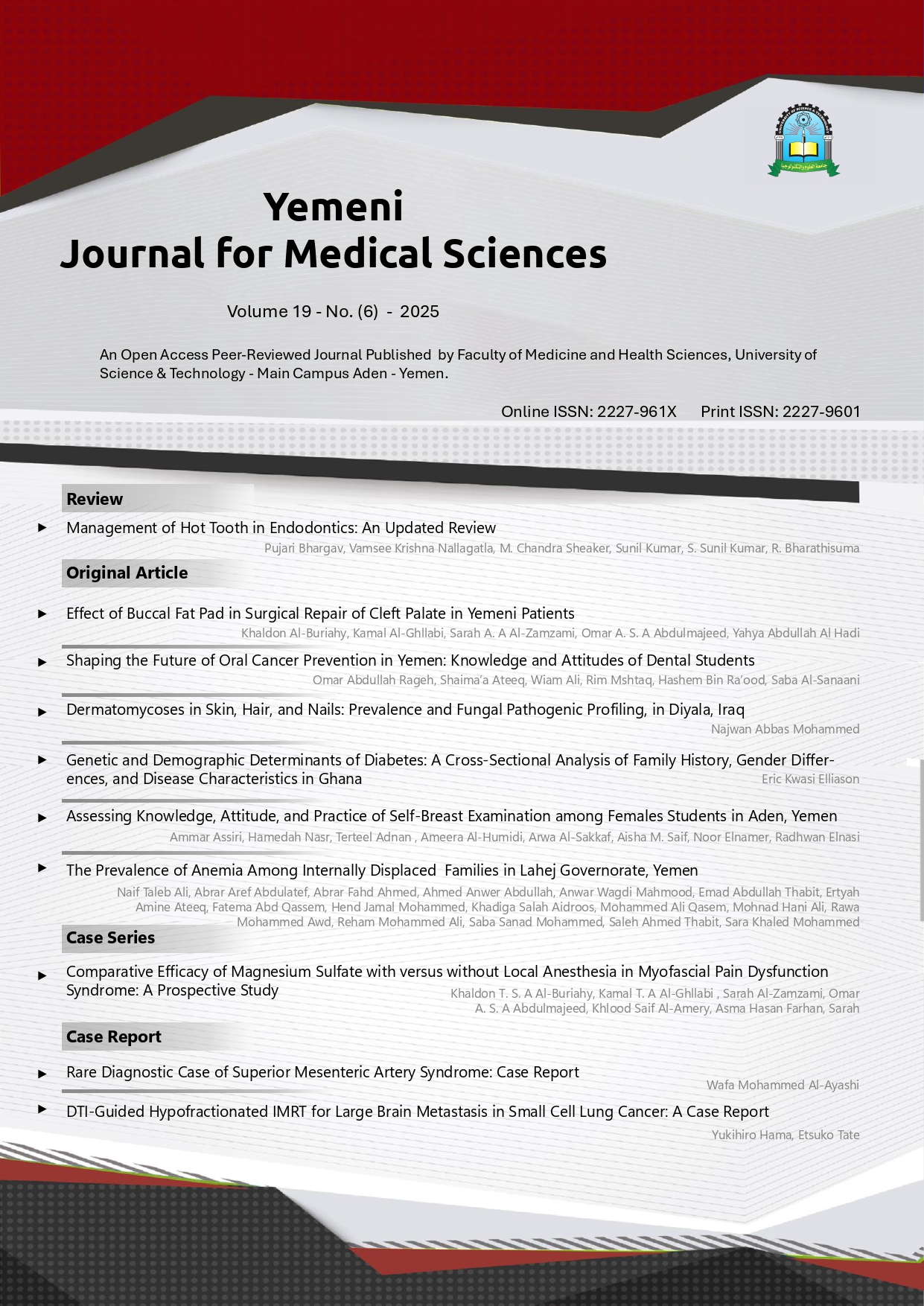DTI-Guided Hypofractionated IMRT for Large Brain Metastasis in Small Cell Lung Cancer: A Case Report
##plugins.themes.bootstrap3.article.main##
Abstract
Background: The utilization of diffusion tensor imaging (DTI)-guided radiotherapy represents an innovative approach for detecting tumor invasion while minimizing radiation exposure to critical white matter tracts.
Objective Diffusion tensor imaging (DTI) is a useful technique for visualizing white matter tracts adjacent to the tumor. The application of DTI in conjunction with radiotherapy for large brain metastases has not been reported. Therefore the current case report is discussing this health issue.
Method: This case report discussing a 62-year-old female patient underwent DTI-guided hypofractionated intensity-modulated radiation therapy for a metastasis measuring 4.5 centimeters from small-cell lung cancer in the left frontal lobe.
Results: The tumor showed complete radiological remission with no observed neurological sequelae or treatment-related toxicity.
Conclusion: DTI-guided radiotherapy has the potential to become a safe and effective treatment for large brain metastasis that are adjacent to matter tracts.
##plugins.themes.bootstrap3.article.details##
Small Cell Lung Carcinoma, Brain Neoplasms, Adverse Effects, Diffusion Magnetic Resonance Imaging, Diffusion tensor imaging, Intensity-modulated radiation therapy

This work is licensed under a Creative Commons Attribution 4.0 International License.
YJMS publishes Open Access articles under the Creative Commons Attribution (CC BY) license. If author(s) submit their manuscript for consideration by YJMS, they agree to have the CC BY license applied to their work, which means that it may be reused in any form provided that the author(s) and the journal are properly cited. Under this license, author(s) also preserve the right of reusing the content of their manuscript provided that they cite the YJMS.

 https://orcid.org/0000-0002-2845-6603
https://orcid.org/0000-0002-2845-6603







